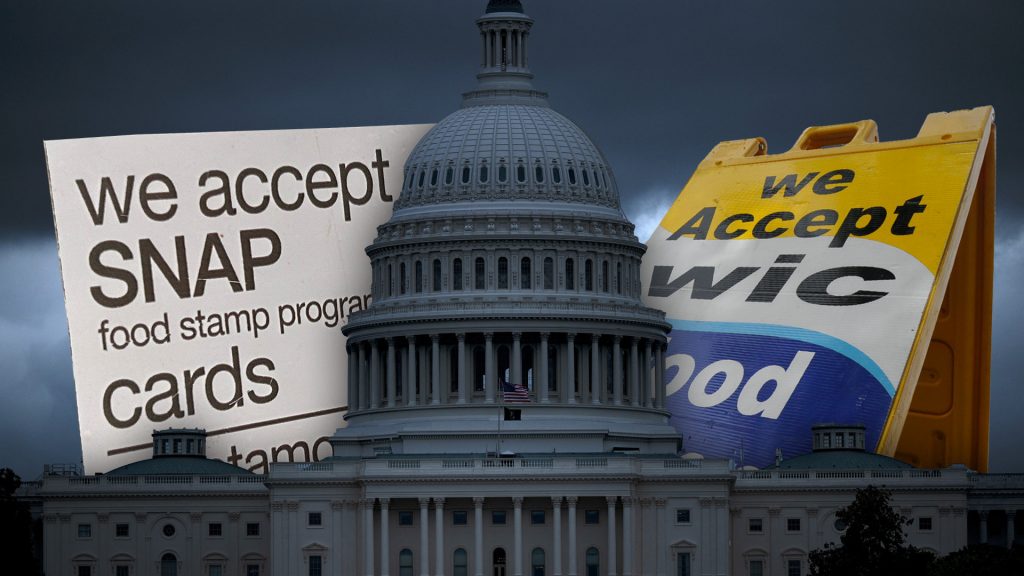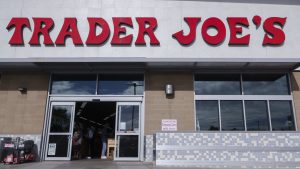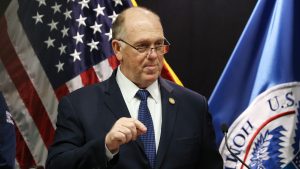SNAP, WIC benefits help keep families fed, but future uncertain amid shutdown

For Robin Nolte, each trip to the grocery store takes careful planning. As someone who relies on the Supplemental Nutrition Assistance Program, or SNAP, she knows that every dollar matters. With the ongoing government shutdown, that planning must now navigate a new layer of uncertainty.
“It is literally the difference between life and death there,” Nolte, who lives in Lincoln, Nebraska, told Straight Arrow News.
Nolte has received SNAP benefits for about a year and a half, using the assistance as a source of stability while rebuilding her life. She said the program helped her and her family stay afloat.
“For six months we were homeless,” she said. “So SNAP was the one thing that was fairly consistent for us, because we could at least get food. That’s a big deal when you’re trying to figure out the other areas of your life.”
Although federal officials say SNAP funding is expected to last through the end of the month, Nolte is already stretching her benefits, turning to food banks in Lincoln to save what she can.
“I’ve used more food banks so I can preserve some of the benefits in case they don’t come through in November,” she said.
SNAP and WIC provide stability for families
Programs like SNAP and the Special Supplemental Nutrition Program for Women, Infants and Children, known as WIC, are funded in advance, meaning benefits continue for a short period despite the federal shutdown. However, if the government closure continues, future payments could be delayed or suspended.
“We’re worried about November benefits going out on time, which can be really impactful for families that are struggling to make ends meet,” said Eric Savaiano, program manager for food and nutrition access at Nebraska Appleseed, a Lincoln-based nonprofit.
In Nebraska, WIC serves more than 36,000 people at more than 100 clinics statewide. According to the Food Research and Action Center, SNAP helped more than 152,000 Nebraskans put food on the table last year, bringing more than $331 million into the state’s economy in fiscal year 2024.
Across the country, SNAP helped an average of 41.7 million people per month in 2024 — more than 12% of the U.S. population, according to the U.S. Department of Agriculture.
WIC also proved to be a critical resource for pregnant and postpartum women, with around 6.7 million participants receiving benefits in 2024.
Just before the shutdown, the National WIC Association warned that the program could run out of money within weeks if Congress failed to approve new funding for the fiscal year that began Oct. 1 — the same day the shutdown started.
The White House has since approved a funding boost to keep WIC benefits flowing in the short term, but advocates say the situation remains uncertain.
“If it goes longer, it’s going to be even worse,” Savaiano told SAN. “The fact that people don’t have the food they need is a problem in our country, and it’s something that policy can impact.”
Food pantries see record demand
At Together Omaha, one of the area’s largest food pantries, demand for assistance has spiked. The nonprofit works to eradicate hunger and homelessness within Nebraska’s largest city.
“At the end of September, we were on pace to be close to 40,000 unique users,” said Mike Hornacek, president and CEO of Together Omaha. “Our average household visits about six or seven times a year.”
According to Together Omaha, the organization provided food assistance to approximately 30,000 people in 2024.
Food insecurity, when families don’t have reliable access to enough food for an active, healthy life, is a challenge for millions of Americans. Feeding America’s 2025 Map the Meal Gap study reports that in 2023, more than 47 million people lived in food-insecure households. That includes more than 12 million seniors and older adults and reaches almost half of children in certain counties.
Hornacek said families are struggling to balance their budgets as the cost of living continues to rise.
“The cost of gas, groceries, utilities and housing just keeps going up,” he said. “Everything costs so much more in 2025 than it has before.”
Together Omaha is already serving more people than at any point during the pandemic — even before any direct impacts from the shutdown or potential cuts to SNAP.
“These are essential services,” Hornacek told SAN. “Our community can’t function or stay healthy unless people have access to nutritious food.”
Still, the unknown lingers.
“We’re in really uncertain times,” Hornacek said. “Organizations and individuals are anxious and nervous because we just don’t know what’s going to happen.”
The post SNAP, WIC benefits help keep families fed, but future uncertain amid shutdown appeared first on Straight Arrow News.





